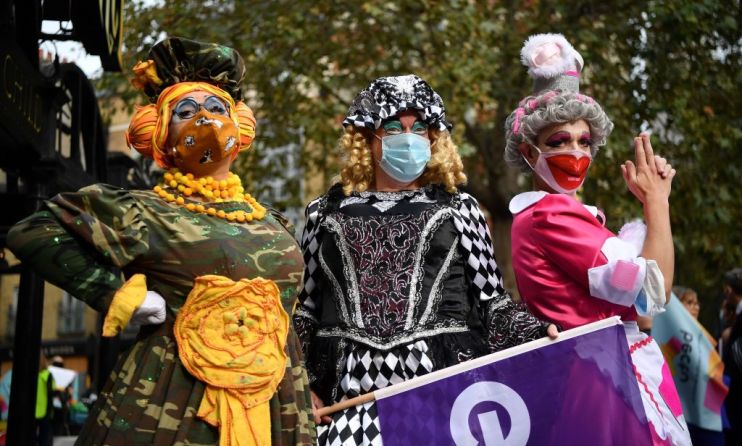The arts are not an optional extra, they are the life and soul of our nation

If at first you don’t succeed, retrain and move into a more viable vocation.
That was the advice of the chancellor this week with regards to the impossible position faced by artists, musicians and actors who have seen their livelihoods decimated since the start of the Covid crisis.
ITV may have later clarified that Rishi Sunak’s comments were aimed more broadly than the arts, but the ire of the cultural sector had already been ignited. These are desperate times for the arts, and Sunak has sparked a debate that the UK cannot afford to ignore. The sector is in crisis, and we ignore that crisis at our peril.
Culture is the foundation of our heritage and national identity. It has taken centuries to develop the UK’s reputation as an epicentre of global arts. Shakespeare, Hockney, Purcell, Banksy, the Beatles, Adele, Idris Elba, Auden, the Globe, the Tate, the Royal Albert Hall, Helen Mirren — these cornerstones of British culture are famed the world around.
They have helped shape the global perception of our nation; their impact will stand for centuries above policy announcements and U-turns. They have defined our experience and understanding of theatre, music, performance and the visual arts. You cannot merely measure their weight with the blunt instrument of money, their value is so much deeper, more human, and more profound.
For many of us, this is the darkest moment we have lived through. It’s easy to pigeonhole the arts as an optional extra in time like this, and so often the cultural sector is the first sacrifice at the altar of “cost-cutting”. However, there is a life-affirming beauty in arts and culture, an outlet for creativity, inspiration, an opportunity to rebalance in difficult times. The pandemic risks sweeping away centuries of progress in months if we don’t act soon.
We also risk undoing much of the important grassroots work currently underway to diversify arts and culture. The danger is that artists or musicians, especially those from less affluent backgrounds, will no longer see a path into a career in culture.
The government needs to truly understand and communicate the social and economic importance of the cultural sector — a sector that is worth £32.3bn a year to the UK economy. Regardless of what the chancellor may have implied, it is possible to have a great career as a creative in the cultural sector, but the opportunity needs to be there. That opportunity requires clarity on how the cultural sector can survive until we get back to normality.
The focus should be on supporting businesses or initiatives in the sector that are economically sustainable. We don’t need handouts; we need the same breaks that STEM businesses get and a refocusing on entrepreneurship. For example, dancers who recently took to Regent’s Canal to bring contemporary ballet to residents of Hoxton were stopped by police for breaking social distancing rules. Creativity needs a stage, not a shutdown.
So as citizens of the UK, what can we do? Can we buy a book, go to the theatre, buy or lease an art collection? We should certainly try — recent research shows that our mental health will likely improve, we’ll have better relationships, and maybe even find greater purpose in life.
But the government has a role too. In its 125th year, this summer, the Proms was hosted to an empty Royal Albert Hall. For many, attending in person is a rite of passage, and an event for people from all walks of life to witness live music for as little as £6. We are approaching a point of no return for the arts.
We must ask ourselves what we truly value, and what we want to preserve as we approach the conclusion of 2020. Fundamentally, we must reignite the confidence in arts and culture, for without an immediate plan for the future, history will be all we have left.
Main image credit: Getty